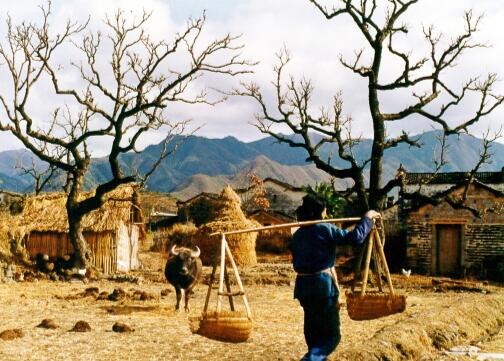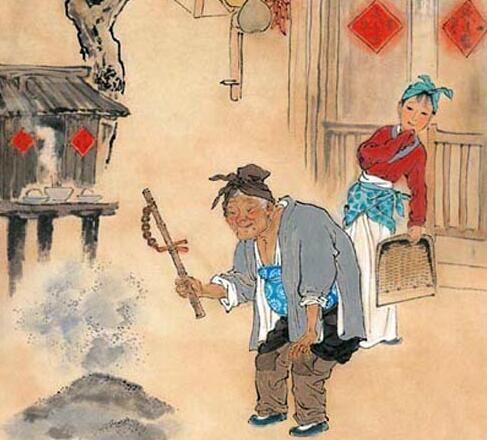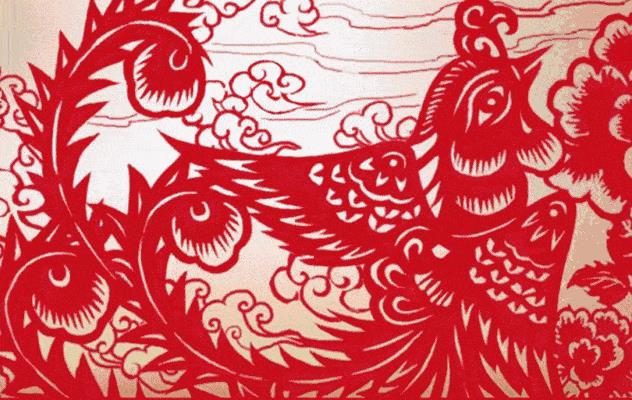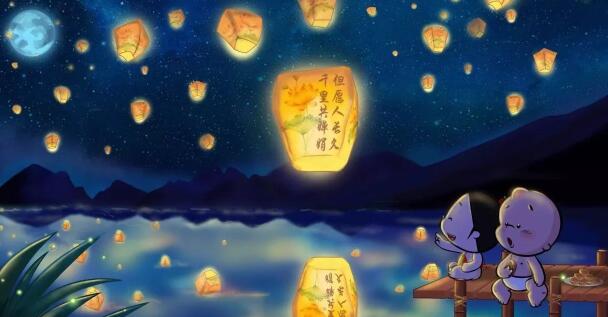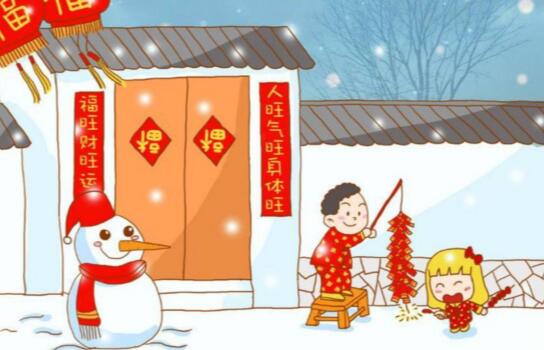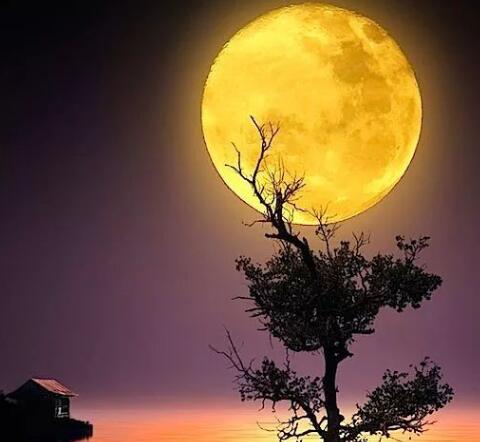七夕节的介绍(英文)
Qixi Festival, originating in China, is the earliest love festival in the world. Among the many folk customs of Qixi Festival, some gradually disappear, but a considerable part of it has been continued by people.
In some Asian countries influenced by Chinese culture, such as Japan, Korean Peninsula, Vietnam and so on, there is also a tradition of celebrating the Double Seventh Festival. On May 20, 2006, Qixi Festival was listed in the first batch of national intangible cultural heritage list by the State Council of the People"s Republic of China.
中文翻译:
七夕节发源于中国,是世界上最早的爱情节日,在七夕节的众多民俗当中,有些逐渐消失,但还有相当一部分被人们延续了下来。在部分受中华文化影响的亚洲国家如日本、朝鲜半岛、越南等也有庆祝七夕的传统。2006年5月20日,七夕节被中华人民共和国国务院列入第一批国家级非物质文化遗产名录。
Qixi Festival, originating in China, is the earliest love festival in the world. Among the many folk customs of Qixi Festival, some gradually disappear, but a considerable part of it has been continued by people.
In some Asian countries influenced by Chinese culture, such as Japan, Korean Peninsula, Vietnam and so on, there is also a tradition of celebrating the Double Seventh Festival. On May 20, 2006, Qixi Festival was listed in the first batch of national intangible cultural heritage list by the State Council of the People"s Republic of China.
中文翻译:
七夕节发源于中国,是世界上最早的爱情节日,在七夕节的众多民俗当中,有些逐渐消失,但还有相当一部分被人们延续了下来。在部分受中华文化影响的亚洲国家如日本、朝鲜半岛、越南等也有庆祝七夕的传统。2006年5月20日,七夕节被中华人民共和国国务院列入第一批国家级非物质文化遗产名录。
Double Seventh Festival
The Double Seventh Festival, on the 7th day of the 7th lunar month, is a traditional festival full of romance. It often goes into August in the Gregorian calendar
This festival is in mid-summer when the weather is warm and the grass and trees reveal their luxurious greens. At night when the sky is dotted with stars, and people can see the Milky Way spanning from the north to the south. On each bank of it is a bright star, which see each other from afar. They are the Cowherd and Weaver Maid, and about them there is a beautiful love story passed down from generation to generation.
Long, long ago, there was an honest and kind-hearted fellow named Niu Lang (Cowhand). His parents died when he was a child. Later he was driven out of his home by his sister-in-law. So he lived by himself herding cattle and farming. One day, a fairy from heaven Zhi Nu (Weaver Maid) fell in love with him and came down secretly to earth and married him. The cowhand farmed in the field and the Weaver Maid wove at home. They lived a happy life and gave birth to a boy and a girl. Unfortunately, the God of Heaven soon found out the fact and ordered the Queen Mother of the Western Heavens to bring the Weaver Maid back.
With the help of celestial cattle, the Cowhand flew to heaven with his son and daughter. At the time when he was about to catch up with his wife, the Queen Mother took off one of her gold hairpins and made a stroke. One billowy river appeared in front of the Cowhand. The Cowhand and Weaver Maid were separated on the two banks forever and could only feel their tears. Their loyalty to love touched magpies, so tens of thousands of magpies came to build a bridge for the Cowhand and Weaver Maid to meet each other. The Queen Mother was eventually moved and allowed them to meet each year on the 7th of the 7th lunar month. Hence their meeting date has been called Qi Xi (Double Seventh).
Scholars have shown the Double Seventh Festival originated from the Han Dynasty (206 BC-AD220). Historical documents from the Eastern Jin Dynasty (AD371-420) mention the festival, while records from the Tang Dynasty (618-907) depict the grand evening banquet of Emperor Taizong and his concubines. By the Song (960-1279) and Yuan (1279-1368) dynasties, special articles for the Qi Xi were seen being sold on markets in the capital. The bustling markets demonstrated the significance of the festival.
Today some traditional customs are still observed in rural areas of China, but have been weakened or diluted in urban cities. However, the legend of the Cowhand and Weaver Maid has taken root in the hearts of the people. In recent years, in particular, urban youths have celebrated it as Valentine"s Day in China. As a result, owners of flower shops, bars and stores are full of joy as they sell more commodities for love.
参考资料:
中国的七夕节的英文是Chinese Valentine"s Day
以下是2005年chinadaily网站有关七夕节的英文介绍:
Raise your head on August 4 and gaze at the stars, you will find something romantic going on in the sky.
VALENTINE"S Day in China, the seventh day of the seventh lunar month, falls on August 4 this year.
That is, on Monday evening, Niu Lang and Zhi Nu will meet on a bridge of magpies(鹊桥) across the Milky Way(银河). Chinese grannies will remind children that they would not be able to see any magpies on that evening because all the magpies have left to form a bridge in the heavens with their wings.
Romantic legend
The legend has been handed down for nearly 2 millennia. The story has been recorded as far back as the Jin Dynasty (256-420 AD). Poets composed hundreds of verses on the love story and many types of Chinese opera tell the story.
The Chinese people believe that the star Vega(织女星), east of the Milky Way, is Zhi Nu and, at the constellation of Aquila(天鹰座), on the western side of the Milky Way, Niu Lang waits for his wife.
Zhi Nu was said to be the youngest of seven daughters of the Queen of Heaven. With her sisters, she worked hard to weave beautiful clouds in the sky, while Niu Lang was a poor orphan cowherd, driven out of his home by his elder brother and his cruel wife.
Niu Lang lamented over his lonely and poor life with an old cow, his only friend and companion. The magical cow kindly told him of a way to find a beautiful and nice woman as his life companion.
Under the direction of the cow, Niu Lang went to the riverside on an evening, where the seven fairies slipped out of their heavenly palace to bathe.
He took one of the beautiful silk dresses the fairies had left on the bank. When the fairies left the water, the youngest couldn"t find her clothes and had to see her sisters fly back to heaven without her.
Then Niu Lang came out with the dress and asked the youngest fairy, Zhi Nu, to stay with him.
Several years passed on Earth, which were only a few days in heaven. Niu Lang and Zhi Nu lived happily together and had two children before the Queen of Heaven discovered Zhi Nu"s absence.
She was so annoyed she had Zhi Nu brought back to heaven. Seeing his beloved wife flying in the sky, Niu Lang was terrified. He caught sight of the cowhide hanging on a wall. The magical cow had told him before dying of old age: Keep the cowhide(牛皮) for emergency use.
Putting the cowhide on, he went after his wife with his two children.
With the help of the cowhide, Niu Lang was able to follow Zhi Nu into heaven. He was about to reach his wife when the Queen showed up and pulled off her hairpin to draw a line between the two. The line became the Silver River in heaven, or the Milky Way.
Zhi Nu went back to the heavenly workshop, going on weaving the clouds. But she was so sad, and missed her husband across the Silver River so much that the clouds she weaved seemed sad. Finally, the Queen showed a little mercy, allowing the couple to meet once every year on the Silver River.
Well-known poem
One of the most famous poems about the legend was written by Qin Guan of in the Song Dynasty (960-1279).
Fairy Of The Magpie Bridge
Among the beautiful clouds,
Over the heavenly river,
Crosses the weaving maiden.
A night of rendezvous,
Across the autumn sky.
Surpasses joy on earth.
Moments of tender love and dream,
So sad to leave the magpie bridge.
Eternal love between us two,
Shall withstand the time apart.
(Translated by Kylie Hsu)
鹊桥仙
宋・秦观
织云弄巧
飞星传恨
银汉迢迢暗度
金风玉露一相逢
便胜却人间无数
柔情似水
佳期如梦
忍顾鹊桥归路
两情若是久长时
又岂在朝朝暮暮
Compared with love stories in Western legends, the story of Niu Lang and Zhi Nu seems not as intense or passionate. Love doesn"t kill or break up the barrier between them. They just wait patiently on the riverbank, believing that their love can withstand their time apart.
It is faith and emotional liaison instead of physical attraction and desire that is emphasized in the story as well as in many other Chinese folktales(民间故事) about love.
In only a few Chinese folk love stories can be found a description of the physical appearances of the hero and heroine.
In the Butterfly Lovers, the heroine, dressed as a boy to attend school, falls in love with a classmate. After they have lived together as classmates for years, the hero did not have the slightest clue that his best friend is actually a girl!
Chinese ceremonies
The seventh day of the seventh lunar month is the only Chinese festival devoted to love in the Lunar calendar.
Unlike St. Valentine"s Day in Western countries there is not so much emphasis on giving chocolates, flowers and kisses. Instead, Chinese girls prepare fruits, melons and incense(熏香) as offerings to Zhi Nu, the weaving maiden, praying to acquire high skills in needlecraft(裁缝), as well as hoping to find satisfactory husbands.
In the evening, people sit outdoors to observe the stars. Chinese grannies would say that, if you stand under a grapevine, you can probably overhear what Zhi Nu and Niu Lang are talking about.
Qixi Festival, originating in China, is the earliest love festival in the world. Among the many folk customs of Qixi Festival, some gradually disappear, but a considerable part of it has been continued by people.
In some Asian countries influenced by Chinese culture, such as Japan, Korean Peninsula, Vietnam and so on, there is also a tradition of celebrating the Double Seventh Festival. On May 20, 2006, Qixi Festival was listed in the first batch of national intangible cultural heritage list by the State Council of the People"s Republic of China.
中文翻译:
七夕节发源于中国,是世界上最早的爱情节日,在七夕节的众多民俗当中,有些逐渐消失,但还有相当一部分被人们延续了下来。在部分受中华文化影响的亚洲国家如日本、朝鲜半岛、越南等也有庆祝七夕的传统。2006年5月20日,七夕节被中华人民共和国国务院列入第一批国家级非物质文化遗产名录。


